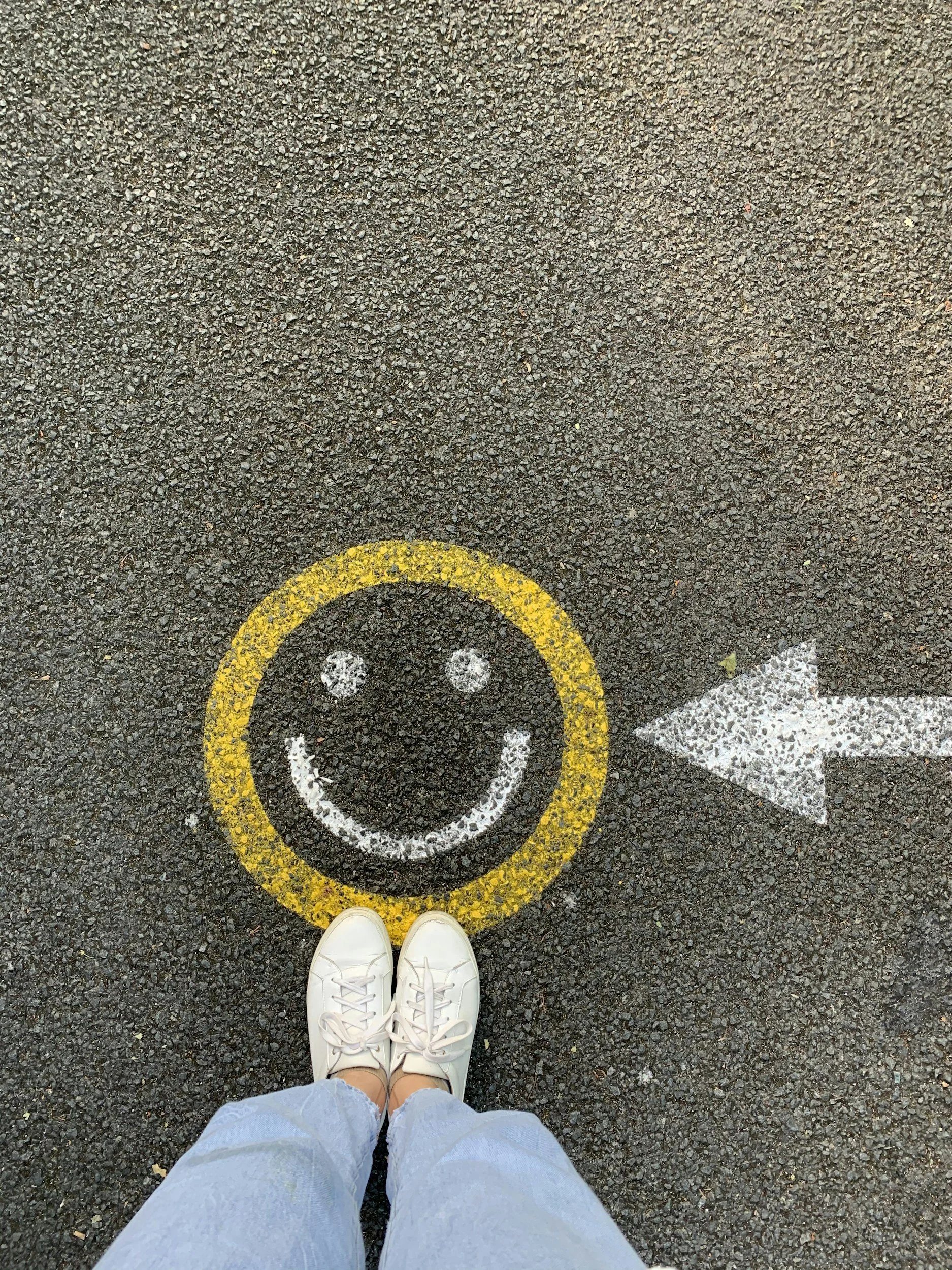Rethinking Body Image: How to Break Free from the Beauty Trap
When you think about your body, what comes up first? For many people, the answer is criticism. Maybe it’s wishing your stomach looked different, comparing yourself to others on social media, or replaying an old comment someone made about your weight. This constant self-monitoring is part of what psychologists call body image, the way we think and feel about our physical selves. At Thrope Therapy, our New York–based practice, we often see how much time, energy, and self-worth get tied up in body image. The good news is that you can work toward a more compassionate, balanced relationship with your body and it doesn’t require “loving” how you look every day.
Food Freedom Through Intuitive Eating: A Guide to Healing Your Relationship with Food and Body
Imagine this: You open your fridge after a long day and immediately hear two voices in your head. One says, “Be good, just have a salad.” The other says, “You deserve to order takeout after the day you’ve had.” By the time you sit down to eat, you feel overwhelmed, stressed, and guilty no matter what choice you make.
This inner tug-of-war is common for people who have been influenced by diet culture. Food becomes less about nourishment or enjoyment and more about rules, shame, and control. And when diets fail (as they almost always do), many people blame themselves instead of questioning the diet in the first place.
At Thrope Therapy, our New York–based practice, we support individuals who want to stop fighting with food and their bodies. One of the most effective and compassionate frameworks we use is Intuitive Eating, a practice that helps people rebuild trust with themselves and find freedom in their relationship with food.
Easing Back-to-School Anxiety: How to Support a Smooth Transition
The air is cooling, the days are shortening, and store aisles are lined with fresh notebooks and colorful pens, that familiar sign that it’s time to go back to school. For some students, this season feels exciting: a chance to reunite with friends, step into new opportunities, and embrace a fresh start.
But for many others, the back-to-school season brings anxiety. It might show up as sleepless nights, a knot in your stomach, racing thoughts, or a sudden drop in appetite. Even if you had a relaxing, carefree summer, the thought of returning to school can feel heavy. If this sounds familiar, you’re not alone. Anxiety during times of transition is incredibly common, and with the right tools and support, it doesn’t have to take over.
Dopamine, Eating, and Finding Joy Beyond Food
We often hear about dopamine as the brain’s “feel-good” chemical. But what exactly does that mean, and how does it affect behaviors like eating or seeking pleasure in other ways? For many people, understanding dopamine can shine a light on why we turn to certain habits, and how we might create healthier, more balanced sources of joy in our lives.
Holistic Approaches to Treating Anxiety and Depression
Anxiety and depression can feel overwhelming, affecting not just your mind but your body, relationships, and overall quality of life. While traditional therapy and medication are effective for many people, a holistic approach can complement treatment by addressing the whole person, mind, body, and lifestyle.
When the Dressing Room Feels Like a Battlefield: A Therapist's Reflection on Body Image, Triggers, and Jeans
When clothing doesn’t fit the way we expect, it can activate feelings of failure, fear, and unworthiness. This is not your fault. These reactions are learned from a culture that teaches us to equate thinness with value and control with morality. But there are ways to meet these moments with more compassion and grounding.
Understanding Trauma: What It Is, How It Shows Up, and What Healing Can Look Like
Trauma can occur when a person perceives danger, or experiences danger, it is the response to the experience that is trauma. Trauma does not always present the same and is not usually what we see depicted in the movies. It doesn’t only come from extreme or life-threatening events, it can also come from chronic stress, medical experiences, relationship wounds, or times when you didn’t feel safe, seen, or supported. For many people, trauma isn’t about what happened, it’s about how your body and nervous system had to respond to survive.
What Is Intuitive Eating? A Therapist’s Guide to Reconnecting With Your Body and Building a Healthier Relationship With Food
Have you ever felt trapped in a cycle of dieting, guilt, or food anxiety? You are not alone, and there’s a different way forward. At Thrope Therapy, we support clients in cultivating a healthier, more compassionate relationship with food through a powerful approach known as intuitive eating.
What is intuitive eating, and how can it help you stop dieting and start trusting your body? Intuitive eating is a self-care framework for eating that is gentle and prioritizing the individuals needs.
The Return of the 2000s Thinfluencer Trend: How to Protect Your Mental Health in a Culture Obsessed with Body Image
It’s hard to miss: the low-rise jeans, the hyper-thin aesthetic, the influencers promoting restrictive routines disguised as “wellness.” The early 2000s thinfluencer vibe is back and it’s causing serious concern for anyone who’s working to heal their body image, recover from an eating disorder or navigate aging.
Navigating Body Changes During Eating Disorder Recovery: How to Find Comfort, Support, and Self-Compassion
One of the most challenging and often overlooked parts of healing from an eating disorder or navigating chronic health issues is coping with body changes. Whether those changes are a result of recovery, aging, illness, or shifts in lifestyle, they can stir up complex emotions. Many people feel overwhelmed by the discomfort, grief, or frustration that comes with living in a body that no longer looks or feels familiar.
How to Challenge Societal Beauty Standards and Build Positive Body Image
Let’s face it: society’s beauty standards are impossible. They're narrow, ever-changing, and built to keep people feeling like they're never quite enough. The good news? You don’t have to subscribe to them. You get to choose what you believe and this can be an ever changing thing to discover and explore. Challenging societal beauty standards and cultivating a positive body image is entirely possible for you. With the right tools, support, and a lot of self-compassion you can challenge stuck beliefs and form new ones that serve you.
What to Do on Bad Body Image Days: A Mindful, Compassionate Approach to Eating Disorder Recovery
We all have days when looking in the mirror feels heavy, when body image thoughts creep in and shift how we feel about ourselves. These moments can be frustrating, emotional, and disorienting. These body image thoughts don’t have to define our day or derail our relationship with ourselves. One of the main goals of healing from body image distress is discovering that these thoughts can come up quickly and can also pass quickly. It is possible to release the tension and stress around the difficult thoughts and move forward with a more positive relationship with your body.
Why Support Groups and Safe Spaces Are Essential for Body Image Healing
Body image healing doesn’t happen in a vacuum. While personal growth is often portrayed as a solo endeavor, the reality is that healing our relationship with our bodies is deeply relational. That’s why support groups and safe spaces play such a powerful and necessary role for anyone working through body image challenges, eating disorder recovery, or even just trying to unlearn the harmful messaging of diet culture.
If you’ve ever felt isolated in your journey, like no one around you understands what it means to reject body shame or work toward body neutrality, you’re not alone. You don’t have to face this alone or do the hard work of recovering alone.
When Loved Ones Are Using Weight Loss Drugs: How to Protect Your Mental Health and Stay Rooted in Recovery
There’s a unique kind of pain that comes from seeing a loved one pursue weight loss, especially if you’ve worked hard to heal your relationship with food, your body, and your self-worth. For those in eating disorder recovery or moving away from diet culture, the growing popularity of GLP-1 medications like Ozempic and Wegovy presents an emotional minefield. In NYC we see the ads plastered all over the subway. The experience of seeing ads that rely on self-date and desire to change makes me incredibly sad and frustrated. It feels like we jumped back YEARS in the body positivity movement.
When Body Image Struggles Take Over: How to Reconnect with Yourself Through Mindfulness and Compassion
Negative thoughts about our bodies can be overwhelming. Sometimes these negative thoughts can take up so much mental space that they interfere with daily life. If you’ve found yourself constantly battling your reflection, avoiding your body, or feeling consumed by self-criticism, you are not alone. You are worthy of peace and it starts by rethinking what it means to truly care for yourself. Redefining what freedom from body image thoughts looks like and practicing that peace.
Self-Reflection Without Self-Judgment: A Guide to Daily Mental Check-Ins
Do you find yourself feeling scattered, distracted or simply all over the place? In our busy lives, we often forget to take time to pause, momentarily, briefly rest and ask ourselves: How am I really doing? A helpful method for asking yourself this question is by pressing that pause button and considering these emotions through regular mental health check-ins and self-reflection. By practicing these habits, you develop a stronger sense of self-compassion, improve your emotional regulation, and expand your self-awareness.
Hidden Strength: Discovering Your Power Beyond Social Anxiety Disorder
Social Anxiety Disorder (Social Phobia) is the severe fear of rejection or embarrassment, especially in social settings. Social Anxiety Disorder can make it difficult to engage in basic activities like talking with strangers, dining in public, making phone calls, speaking up in class, or attending social events. While it is often quite normal to feel butterflies before going on a first date, Social Anxiety Disorder is far more than just shyness and nerves. If you find that your anxiety is interfering with your routine and daily life activities, it is quite possible you are dealing with Social Anxiety Disorder.
The Conscious Consumer's Guide to Social Media: How to Use Social Media More Mindfully
Social media is an important part of our culture. It is a method of staying in contact with friends and family, keeping up with our favorite celebrities, and staying updated on what is going on in the world. However, too much screen time can contribute to feelings of stress and anxiety. Research has shown that young adults who use social media are three times more likely to be depressed. If you find yourself feeling the weighing effects of too much social media use, consider how you can use social media more mindfully. In managing your social media use, you can help reduce your stress levels, improve your mood and give you a better sense of emotional wellbeing. Disconnecting from social media can feel impossible, but it doesn’t have to be.
How to Support Someone with an Eating Disorder
If you are reading this blog, you might have a friend, family member, or loved one who has an eating disorder. The desire to support them is there, but finding the right words and actions can be scary and uncertain. However, your role as a support person is invaluable – research consistently shows that strong support systems significantly improve recovery outcomes for individuals with eating disorders. Understanding how to be there for someone with an eating disorder isn't always intuitive, but with compassion, patience, and the right resources, you can make a meaningful difference in their path to recovery.
Dispelling 4 Persistent Myths About Therapy
Many misconceptions and misunderstandings persist when it comes to seeking help from psychotherapy, including its purpose, its processes, and its candidates. These misconceptions tend to create obstacles for individuals who might potentially benefit from treatment, thereby preventing them from seeking help and support. It can require a lot of courage to pursue and seek out treatment, so it is helpful and informative to challenge these typical myths.




















